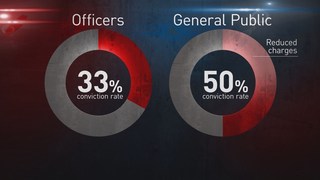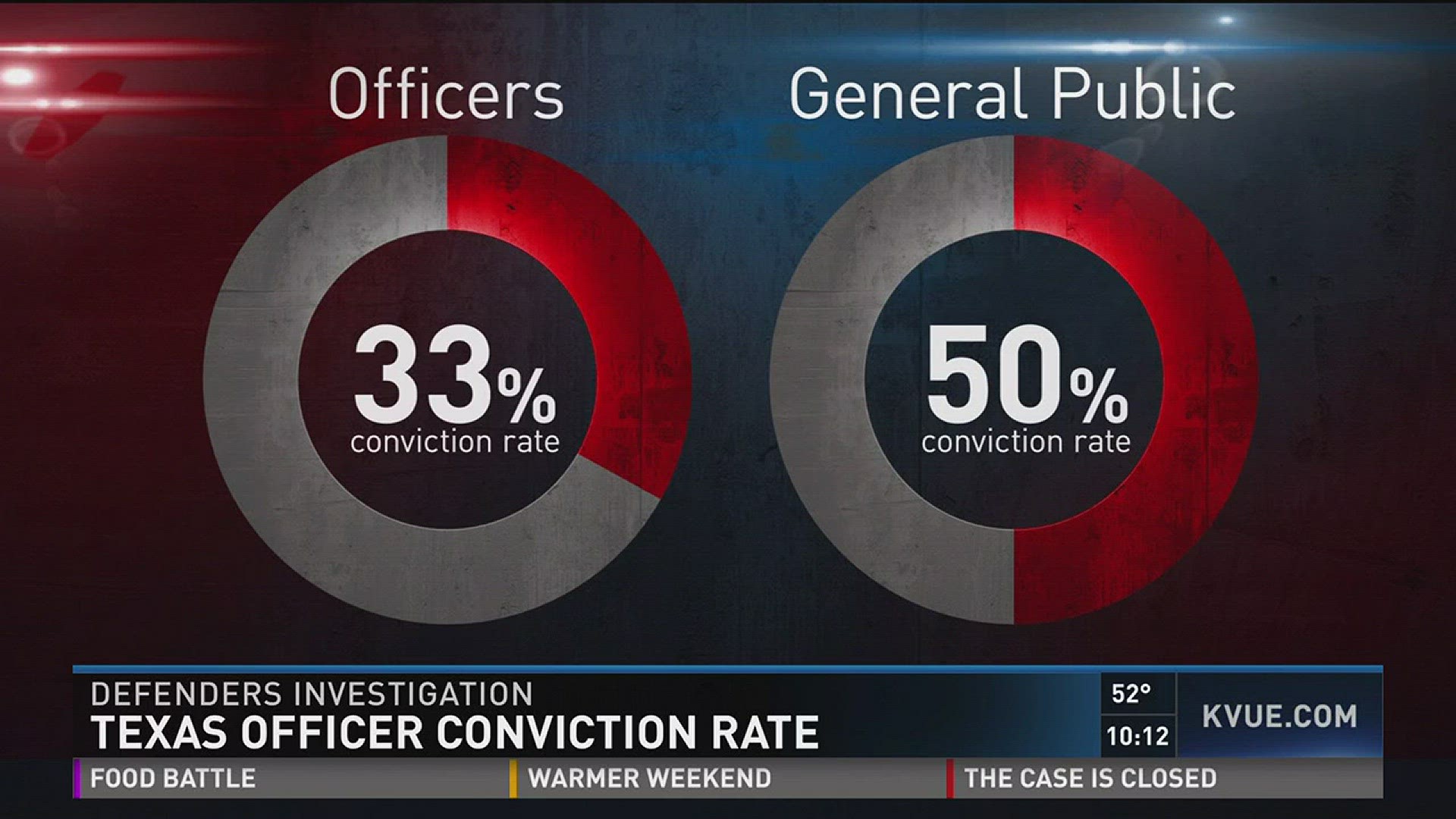Pictures posted on Mathew Jackson’s Facebook wall clearly show a proud father full of joy.
“He was a great dad,” explains Erica Fitts, Jackson's widow.
In 2013, Jackson got a call he hoped would make him a better father. It was his boss offering him a job promotion at the restaurant where he worked.
“My brother just got the best news of his life. His life was going to take a turn for the better,” said Patrick Jackson, Mathew's brother.
Jackson got into his car that evening and headed into work, but he never returned. A few hours later, his brother and Fitts saw Jackson’s car pulled over on Highway 1604 in San Antonio.

When I drove by, I could see my brother’s leg hanging out of the car. I pretty much already knew,” said Jackson. They later learned Jackson died from a gunshot wound to his chest.
It’s unclear why, but investigators said Bexar County Deputy Anthony Thomas was off duty in his personal vehicle when he shot and killed Jackson on the side of the road during traffic.
Investigators found eight bullets at the scene, all of them were from Thomas’ gun. No weapon was found in Jackson's car.
Deputy Thomas’ murder trial is scheduled later this year. He declined interview requests for this story. While Jackson’s family is hopeful for a conviction, a KVUE Defenders investigation reveals the chance his murder charge will be dismissed or reduced is in the deputy's favor.
Over the past six months, our investigative team reviewed 1,000 felony charges against Texas officers, from murder to assault and rape, identifying each court disposition.
Of those charges reviewed, records show 33 percent of officers were convicted of the original crime. According to the state’s Office of Court Administration, the general public’s conviction rate in Texas is 50 percent. The administration’s conviction rate also includes reduced charges, like misdemeanors, which make it difficult to compare who is convicted more.
What’s clear is that our investigation shows Texas law enforcement officers are seldom convicted of felonies, allowing them to keep their badge, despite convicted of multiple misdemeanors. And, it's all legal.
By the numbers
- 2,385: total cases researched
- 1,954: total Texas officers researched
- 1,066: total dispositions identified.
- 667 =66.7%: dismissed or reduced
- 333 = 33.3%: convicted
- 66: pending
State Rep. Garnett Coleman (D-Houston) said the public should be concerned with KVUE’s findings.
“I don’t think people would believe that’s fair,“ said Coleman.
Coleman has spent his 25-year legislative career fighting for better policing and accountability.
“I mean, there has to be some way to make sure that it’s fair and they’re not being treated, given an advantage,” said Coleman.

According to a 2010 national study by the Cato Institute’s National Police Misconduct Reporting Project, of those officers convicted, 36 percent of them actually spent time in prison. Go here to read CATO's study.
According to CATO’s analysis of police misconduct from April of 2009 through December of 2010, it determined prosecuting police misconduct in the U.S. is problematic. “Conviction rates, incarceration rates, and the amount of time law enforcement officers spend behind bars for criminal misconduct are all far lower than what happens when ordinary citizens face criminal charges,” researchers wrote.
KVUE’s findings also identified some officers have repeat offenses cleared in court. That includes former Austin Police Officer Leonardo Quintana, who shot and killed 18-year-old Nathaniel Sanders in 2009 while on duty.
A grand jury investigated and declined to indict him. The decision ignited outrage in Austin.
One year later, police arrested Quintana for assaulting his girlfriend. A jury found him not guilty. His records were likely expunged because the Williamson County Clerk’s office no longer has evidence of his arrest, despite numerous media reports of the assault.
A few months later, police arrested Quintana for a DWI. He was given a year probation. Today, he’s a sheriff's deputy in south Texas.
“I’ve never walked in there to a prosecutor and said, ‘I’ve got a cop' and they say, 'Oh, okay, let’s dismiss it.’ It would never happen,” said Brad Heilman, a criminal defense attorney in Austin who represents officers accused of crimes.
The attorney knows what it’s like to be an officer in trouble with the law. He’s a former Austin Police officer.
In 2005, a grand jury indicted him and his partner for their involvement in the beating of a suspect resisting arrest. Heilman said they were trying to restrain the suspect after he grabbed his weapon.
“As he was pulling my gun out of my holster, other officers showed up to assist,” said Heilman
A jury found them not guilty. Heilman went to law school a short time later and now works for the firm who represented him.

Heilman said the experience left him frustrated with the system. He strongly believes he was not given special treatment.
“There were a lot of things in this case that made me believe that if they’re going to do that to one of their own, imagine what they are going to do to the general public,” said Heilman. “That led me to be a criminal defense attorney and definitely lead me to represent law enforcement.
The Texas Municipal Police Association isn’t surprised with the conviction rates identified by KVUE. TMPA president Kevin Lawrence said it’s not uncommon for offenders to accuse officers of a crime to change the focus of an investigation.
“I think it’s more likely for police officers to be falsely accused of theft than members of the general public because those accusations are made in retaliation for enforcement actions that they have taken,” said Lawrence.

